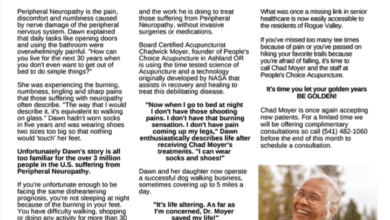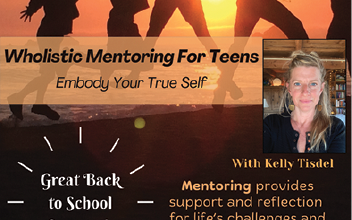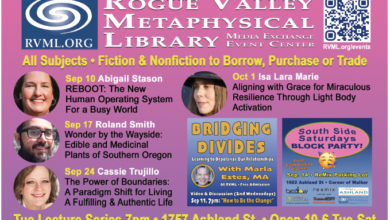Catherine Greenspan – New York Life Insurance
In the aftermath of the most destructive fire in modern Southern Oregon history, I spoke with New York Life insurance agent Catherine Greenspan. We have had the interview scheduled for months and when I didn’t hear from Catherine in the midst of the fire, I started to worry. What do we do in times of crisis to protect ourselves and our loved ones? Catherine and I eventually connected to bring you this very timely and relevant interview. I hope you will find it interesting and supportive to you in this time of great uncertainty.
Hi Catherine, thank you so much for speaking with us today. I hope you and your family have been safe during the recent fires here in Southern Oregon.
Hi, Shields. Thank you. I am well. My heart is broken for friends and clients who have lost so much, but I am also blown away (but not surprised) by the outpouring of community support.
Catherine, right now our community has been dealt a huge and severe blow. What are the immediate things we need to be asking ourselves, both as survivors and victims?
I think we must all keep aware that this is a long-term rebuilding situation we’re facing. We must take care of ourselves so we can help others: eat well, get adequate sleep, exercise, and breathe.
Catherine, in the midst of the fire you actually chose to leave town. Why?
Being in a constant state of evacuation was unsettling. When I lost my internet connection and my cell service got spotty, I started worrying what would happen if I lost power. I could see the fire burning in the distance out my window when I went to bed, and was concerned about a middle-of-the-night text saying my area of town was now in Level 3 “Go!” What if I slept through the text? What if the fire closed I-5 southbound? I grew up in the Midwest where we frequently had to take cover in basements or under our desks in school during a tornado warning. The situation always passed. Being in a state of evacuation with no end in sight was not something I’d ever experienced. The what-ifs got to me so I decided to be proactive and leave town to regroup so I could return and feel myself on solid ground. This was my version of putting on my oxygen mask first.
Catherine, thank you for your candid and honest response to a very personal question. I know that many in the community may have different opinions and inevitably we are all ultimately responsible for the safety and welfare of ourselves and our loved ones. Planning and acting ahead of time is exactly what your business is about, not waiting until the moment of crisis is upon us to decide.
We have a saying at New York Life: Plan for what’s hard when it’s easy. Insurance is one of those “easy” things people can plan for. September was life insurance awareness month, so I had already begun imploring my friends, family, and networks to pull out their policies and review them with a professional, especially if the policies were many years old.
In your conversations with your clients today, what are you hearing in their voices and what steps are you taking to help to offer them the safety and security they seek?
The real urgency started when the global pandemic was declared earlier this year. Online searches for life insurance increased.* A sudden sense of mortality swept through the country. “What will happen to my kids if I die?” was a question I heard a lot. Those with life insurance policies were wondering if they had enough. For those without policies or policies through their employer wondered: “Do I have enough?” and “Will I be able to keep this if I lose my job?” I have a process that I take people through to help come up with the amount of life insurance their family would need if they passed away. Having this conversation is often soothing. As I mentioned personally, the nebulous “what if” questions are the most unsettling.
Catherine, will you please tell us a little bit more about your own work and experience with insurance? What makes you particularly good at what you do?
I work and live from the premise that we all have the ability to make the choices that are best for us. I help people connect to the root level of understanding why they want to make the decisions they do. Often when it comes to life insurance, people inherit their parents’ beliefs: “life insurance is only for funeral expenses” or “life insurance is mandatory.” I try to inform and educate people by focusing on their own individual situation. Their dreams, their goals, their needs. Once people are knowledgeable about how life insurance works and how it can protect their loved ones, then they can make informed choices.
What does this mean for your customers?
Life insurance is just one piece of the puzzle – it’s the foundation of a solid financial situation. I help people protect what they’re trying to achieve in life. That said, my goal is to build long-term relationships with people. I am going to remember the things that we discussed, and I want to be valuable and relevant to them. I am going to be here as life – and needs – evolve. I feel like I have this skill and this knowledge and I’m here to share it. By sharing my knowledge, I am helping my community. This is my contribution.
Let’s talk about the nuances of language. Please tie this into the art of listening to your customers.
In the early years of working in financial services, I was often sitting in on meetings while a financial advisor ran the meeting. I often noticed clients’ eyes glazing over when the advisor used financial jargon like “basis points” or “riders.” Clients would nod when asked if they understood; they would shake their heads when asked if they had any questions. I would often interject with explanations or definitions when I could clearly sense a disconnect. Now when I have client meetings, I am hyper-aware of the language I use, and I constantly check for understanding. Someone recently asked me what “underwriting” means, and I was so grateful to become aware that that’s not a term everyone understands. I listen and care about people’s understanding, and I think that gives people an opening to ask. The biggest compliment I get from people is that they tell me they were anxious before the meeting because “money stuff” is not their favorite thing to talk about, but I made them feel comfortable and not afraid.
You must be a great diplomat.
I am a good listener. I pause before acting to ensure the objective has the greatest chance of being achieved. Communication differs greatly when one wants to get a point across versus negotiate a point. I rarely get caught up in trying to convince people of things if they are not interested or open to new ideas or ways of looking at things. I am also a big believer in boundaries because these help people feel safe. I have a couch in my office, not chairs. A couch is warmer and more welcoming, and people often get restless when discussing their finances and especially their mortality. The couch is deep blue and velvet-like, so it’s very calming and cozy.
Catherine, can you please give us an overview of the services you provide to your customers?
I help individuals and businesses with life insurance, investments, annuities, and long-term care solutions.
Catherine, you go out of your way to understand your clients. Please say more.
I want to see people empowered. I love to connect and care about their “why.” I pay close attention to when people are talking to track if they truly understand the choices they are making.
Catherine, you have spent over 15 years working intimately within the world of financial services. What are your rules of engagement in the work that you do?
Never presume. Always verify. Review at least yearly. Nothing about financial services or insurance is “set it and forget it.” Someone may purchase life insurance to cover an outstanding mortgage or to cover their income should they pass away while their kids are young. Well, mortgages get paid off and kids grow into adults. Life changes and financial needs evolve and change too.
Catherine, can you share any favorite quotes or short stories with us?
About 15 years ago I read The Three Pillars of Zen by Roshi P. Kapleau. When I read the words “Life is transitory,” everything made sense. This idea is similar to the saying, “This too shall pass.” I realized I had been seeking in life a sense of irrevocable certainty. This idea that everything is transitory freed me in that moment and has been continuously freeing me from the idea that anything is permanent. This underscores that the only constant is change. This helps in situations like the recent fires in knowing that even amidst the devastation, life goes on and – back to choice – we make choices to move forward. I have a client who lost his business in the fire, and the first thing he said is: “We’re going to rebuild and we’re going to be better and stronger.” That attitude is a choice. We choose to persevere.
A second favorite quote is “People don’t care how much you know until they know how much you care,” said by Theodore Roosevelt.
Finally, are there any last words you want to share with the community?
Just this: when it comes to trusting someone for guidance with insurance and your money, listen to your heart. Make sure the person listens to you. When that person speaks, make sure they address both you and your partner – and doesn’t direct the conversation to only one of you. Make sure you understand that person. If they use words you don’t understand, ask for clarification, and make sure it’s important to them that you understand. You don’t have to become a money expert, but you need a money expert who is going to help you set a priority.
Learn More:
Catherine Greenspan, Financial Services Professional^ and Agent, New York Life Insurance Company
149 Clear Creek Drive, Suite 105, Ashland, OR 97520
https://www.newyorklife.com/agent/cgreenspan
(541) 840-1704
*Source: “Has COVID-19 awakened the public’s need for life insurance?” https://www.rgare.com/knowledge-center/media/covid-19/has-covid-19-awakened-the-public-s-need-for-life-insurance
^Registered Representative offering securities through NYLIFE Securities LLC, member FINRA/SIPC, a Licensed Insurance Agency and a New York Life Company.




